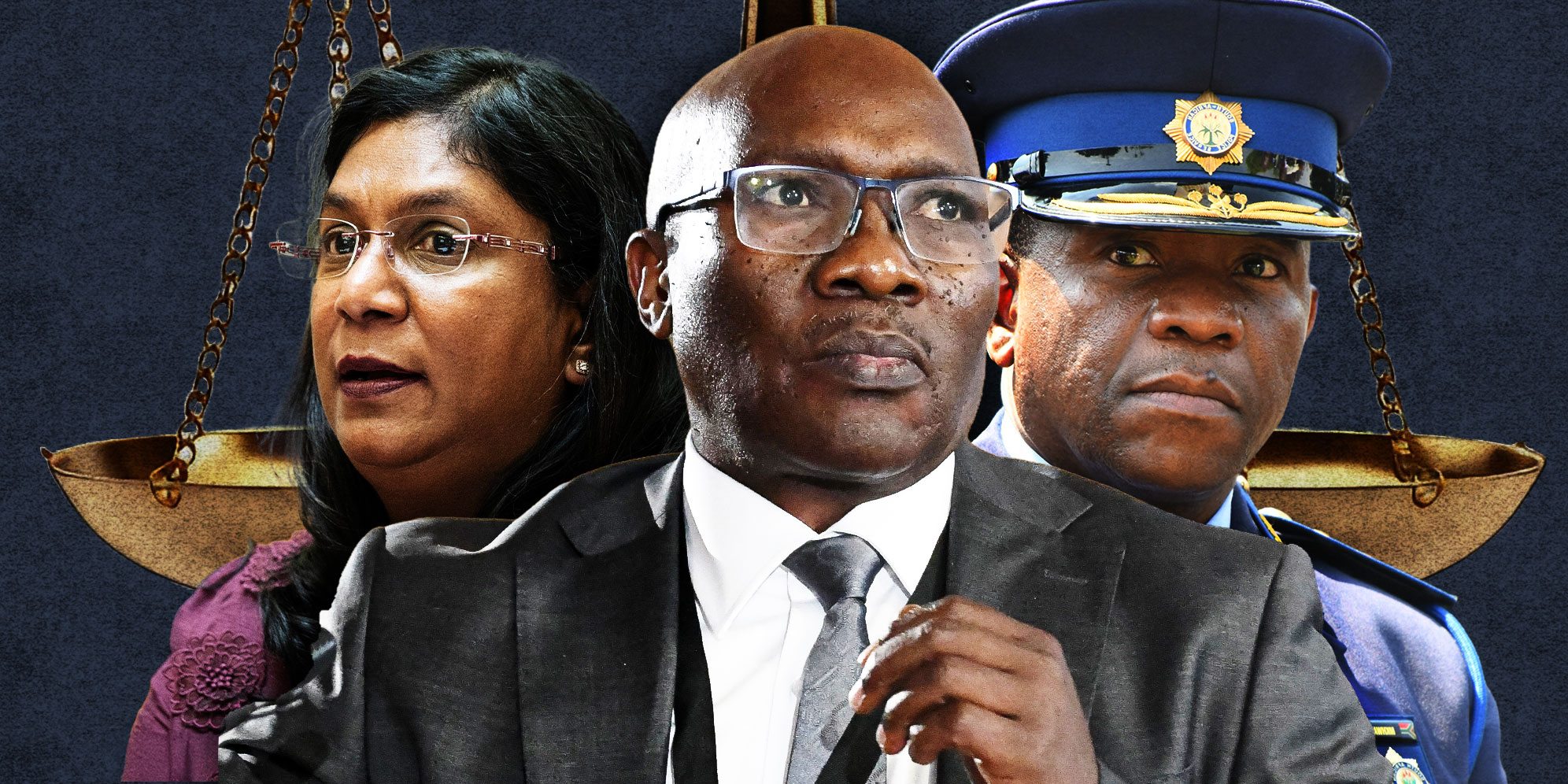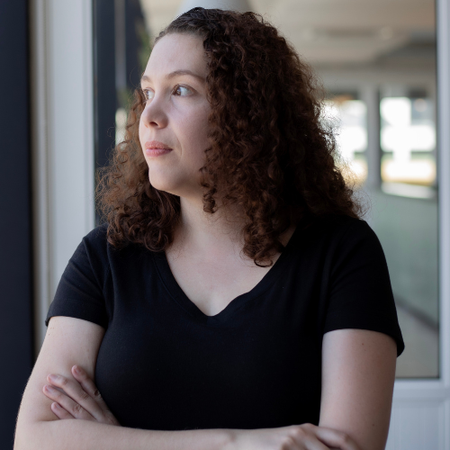South Africa is caught between two contradictory State Capture narratives, which are becoming clearer as the country’s policing scandal develops.
So too are different alliances, or stances, in law enforcement – and the divisions point to a highly worrying situation in a country whose history is already characterised by capture.
The growing police scandal stems from accusations that a drug cartel has infiltrated South Africa’s criminal justice sector.
To try to succinctly summarise the barrage of accusations and countering allegations in this arena, the police’s Crime Intelligence unit will be the focus of this article.
It is no stranger to controversy – for years, infighting, accusations of slush fund looting and instability have rocked the unit.
‘Body bags’ threat and kidnapping case
This situation persists and different developments last week underscore it.
On Thursday, 6 November 2025, Crime Intelligence was the focus of proceedings in Parliament, while several senior officers attached to the unit appeared in a Pretoria court on criminal charges which they have denied.
Investigating Directorate Against Corruption (Idac) head Andrea Johnson, speaking in Parliament last week, said she had received a death threat in relation to the Crime Intelligence arrests that culminated in the court case.
It said, in part: “Mrs IDAC… You going to wish you did not **** with us. Get body bags ready.”
Two days later, on Saturday, 8 November, Idac announced that its investigations head, Matthews Sesoko, had been kidnapped, robbed, assaulted and released in Gauteng.
His laptop and cellphone had been stolen.
“While the [National Prosecuting Authority overseeing Idac] is wary of making any speculation on the motive behind such horrific action and whether it is related to his work, the incident and its timing reflect the possible dangers in this space,” Idac spokesperson Henry Mamothame said.
"Looking at the car, we don't see any blood..." SAPS spokesperson Athlenda Mathe says Brown Mogotsi is not responding to calls for him to present himself to the police to open a case after the attempt on his life. She indicates that if this is staged, he will be charged with… https://t.co/gLNOlbEl1L pic.twitter.com/XTC4Q7TaQD
— Newzroom Afrika (@Newzroom405) November 4, 2025
Several days before that, late last Monday, the car of Brown Mogotsi – who is accused of being a middleman between a crime suspect and the police ministry – was shot at in Vosloorus.
Mogotsi was not hurt.
Together these incidents may stoke suspicions of staged, or highly targeted, crimes.
They are under investigation and emphasise how South Africa needs clean structures to combat criminality.
This is why various state entities such as Crime Intelligence are necessary.
Below is a chronological outline of how the broader policing scandal has developed into what emerged last week as two clear-cut countering State Capture narratives hinged on the Crime Intelligence unit.
Warning and arrests
In March this year the South African Police Service delivered a presentation in Parliament. It warned that the national Crime Intelligence head at the time, Dumisani Khumalo, was being targeted because he was cleaning up the unit.
It said that Khumalo “had to identify and recruit capable senior officers” via transfers and promotions to ensure new performance indicators were implemented.
It alleged: “This resulted in [Khumalo being] wrongfully accused of bringing [in] his ‘own people’.
“Some… social media postings talk to the misinformation and unfounded allegations that the Commissioner wrongfully appointed two Senior Managers within the Division of which it was found to be not true.”
Fast-forward three months to June this year.
Idac officers arrested Khumalo and six colleagues in connection with an allegedly irregular appointment.
This is essentially what the police warned Parliament about a few months earlier when referencing “unfounded allegations” against Khumalo.
He and his co-accused colleagues have denied the charges against them.
Mkhwanazi’s seismic accusations
The month after Khumalo and his colleagues were arrested, KwaZulu-Natal’s police commissioner, Nhlanhla Mkhwanazi, held an astounding press conference during which he alleged a drug-trafficking cartel had infiltrated the country’s criminal justice system.
This is what sparked the unprecedented scandal that is now rocking law enforcement.
Two hearings – a parliamentary ad hoc committee and the Madlanga Commission of Inquiry – were created to investigate Mkhwanazi’s allegations.
It is through these that Mkhwanazi subsequently alleged that Khumalo – and Crime Intelligence – was targeted to frustrate investigations into certain criminals.
Read more: Mkhwanazi alleges SA’s new capture — malicious corruption-busters and classified intelligence leaks
In other words, Mkhwanazi implied that Khumalo had been set up.
The accusations against Khumalo and his colleagues emanated from National Coloured Congress leader Fadiel Adams.
Mkhwanazi alleged Adams had “unauthorised access to intelligence information”. (This was apparently classified information from the Crime Intelligence unit, which suggests members in the unit leaked this to Adams.)
According to Mkhwanazi, last year Adams first lodged complaints against certain Crime Intelligence officers with police in the Western Cape and in Gauteng.
Mkhwanazi alleged the complaints were so flimsy that they did not even warrant being registered.
/file/dailymaverick/wp-content/uploads/2025/11/ED_585071.jpg)
Adams then apparently turned to the police minister at the time, Senzo Mchunu, and eventually dealt with Idac whose officers went on to arrest Khumalo and his six colleagues in June.
Mkhwanazi also alleged that sources in Idac told him there was a good structure in it, but also a “structure that is malicious that is used as a weapon to further disrupt the criminal justice operations”.
What Mkhwanazi ultimately seemed to allege is that certain Crime Intelligence members, through Adams and Idac, got Khumalo and his colleagues detained.
Johnson’s ‘State Capture’ investigations
Idac’s head, Johnson, fits in here.
Last Thursday she testified before Parliament’s ad hoc committee – the same day Khumalo and his criminally charged colleagues appeared in a Pretoria court.
Their case was postponed to February next year.
Testifying in Parliament on Thursday, Johnson rejected much of what Mkhwanazi had alleged.
She denied there was a “malicious structure” in Idac, as he said he had been told.
Read more: Andrea Johnson rejects ‘Witch-Hunt’ claims as policing scandal exposes deep rifts
Johnson confirmed that in November last year complaints against Crime Intelligence officers, emanating from Adams, ended up with Idac.
His complaints were divided into six matters.
“What was presented… in terms of the collective matters… fell within the ambit of State Capture,” Johnson told MPs.
This means Idac viewed Adams’s complaints, which Mkhwanazi had dismissed as flimsy, seriously.
Two sets of the complaints resulted in arrests, including that of Khumalo and his Crime Intelligence colleagues.
Four other matters were still under investigation.
The #AdHocCommittee probing allegations by @Saps KZN Head, Gen Nhlanhla #Mkhwanazi, is back in session this morning - now hearing evidence from IDAC Head, Adv Andrea Johnson #PKTT @ParliamentofRSA pic.twitter.com/mGUjw5lgKn
— Justice-and-security-Cluster (@JustSecuCluster) November 6, 2025
It was while addressing MPs last week that Johnson mentioned the “body bags” threat against her, saying: “The fight against corruption is not for sissies.”
She insisted there was “no truth to the allegation” that Idac was involved in a “witch-hunt” against police officers.
Johnson was of the view that Idac did its work differently to the police and that was why it acted on Adams’s accusations, while police investigators had not.
Crime Intelligence connections
In between all this, several references to Idac and Crime Intelligence connections were made.
Some of these expand into the broader policing scandal.
The connections include:
- Johnson knows Crime Intelligence’s Major General Feroz Khan who heads Counter and Security Intelligence. She confirmed this in Parliament. It has been alleged in other proceedings that Khan had ties to organised crime accused Vusimuzi “Cat” Matlala, who is central to the policing scandal. These allegations place Khan in a law enforcement faction that opposes Mkhwanazi;
- Johnson’s husband has worked in the police’s Crime Intelligence unit for about 16 years, which means that when Khumalo was arrested by Johnson’s Idac in June, Khumalo was her husband’s boss; and
- An Idac officer, Brian Padayachee, who was involved in the investigation into Khumalo and co, previously worked for the police’s Crime Intelligence unit. Johnson’s husband therefore probably knows him.
Seen through the lens of Mkhwanazi’s allegations, these connections may create the impression that individuals in Idac were colluding with Crime Intelligence officers, and this led to Khumalo’s arrest.
However, Johnson reiterated last week that Idac was operating above board.
Testifying before Parliament’s ad hoc committee, she said she and her husband never discussed their work, adding: “Pillow talk gets people killed.”
Some MPs were sceptical.
Contradictory capture narratives
Those connections aside, what Johnson’s testimony in Parliament last week underscores are the two main State Capture narratives.
Mkhwanazi is essentially saying that Khumalo and certain Crime Intelligence colleagues were maliciously targeted to derail investigations – and that some Crime Intelligence individuals, and perhaps even Idac officers, were part of this overall plot.
As for Johnson, she is ultimately saying that Idac acted lawfully and correctly and that the complaints against Khumalo and colleagues warranted investigation – and their arrests were legitimate and carried out in good faith.
Read more: SA’s ongoing capture — Mkhwanazi’s accusations and countering charges merge with past state sabotage
She has not said Khumalo and his colleagues are guilty, but that the grounds for their arrests were solid.
The facts are that the arrests took place and a court will have to determine the strength of the related criminal charges.
While Johnson and Mkhwanzi’s stances contradict each other, both point to State Capture.
This obviously does not bode well for South Africa, which is also struggling with criminality external to state structures. DM




 Illustrative Image: Andrea Johnson. (Photo: Gallo Images / Brenton Geach) | Lieutenant General Dumisani Khumalo. (Photo: Gallo Images / Frennie Shivambu) | KwaZulu-Natal Police Commissioner Lieutenant General Nhlanhla Mkhwanazi. (Photo: Gallo Images / Frennie Shivambu) | Scale (Image: Freepik)
Illustrative Image: Andrea Johnson. (Photo: Gallo Images / Brenton Geach) | Lieutenant General Dumisani Khumalo. (Photo: Gallo Images / Frennie Shivambu) | KwaZulu-Natal Police Commissioner Lieutenant General Nhlanhla Mkhwanazi. (Photo: Gallo Images / Frennie Shivambu) | Scale (Image: Freepik) 